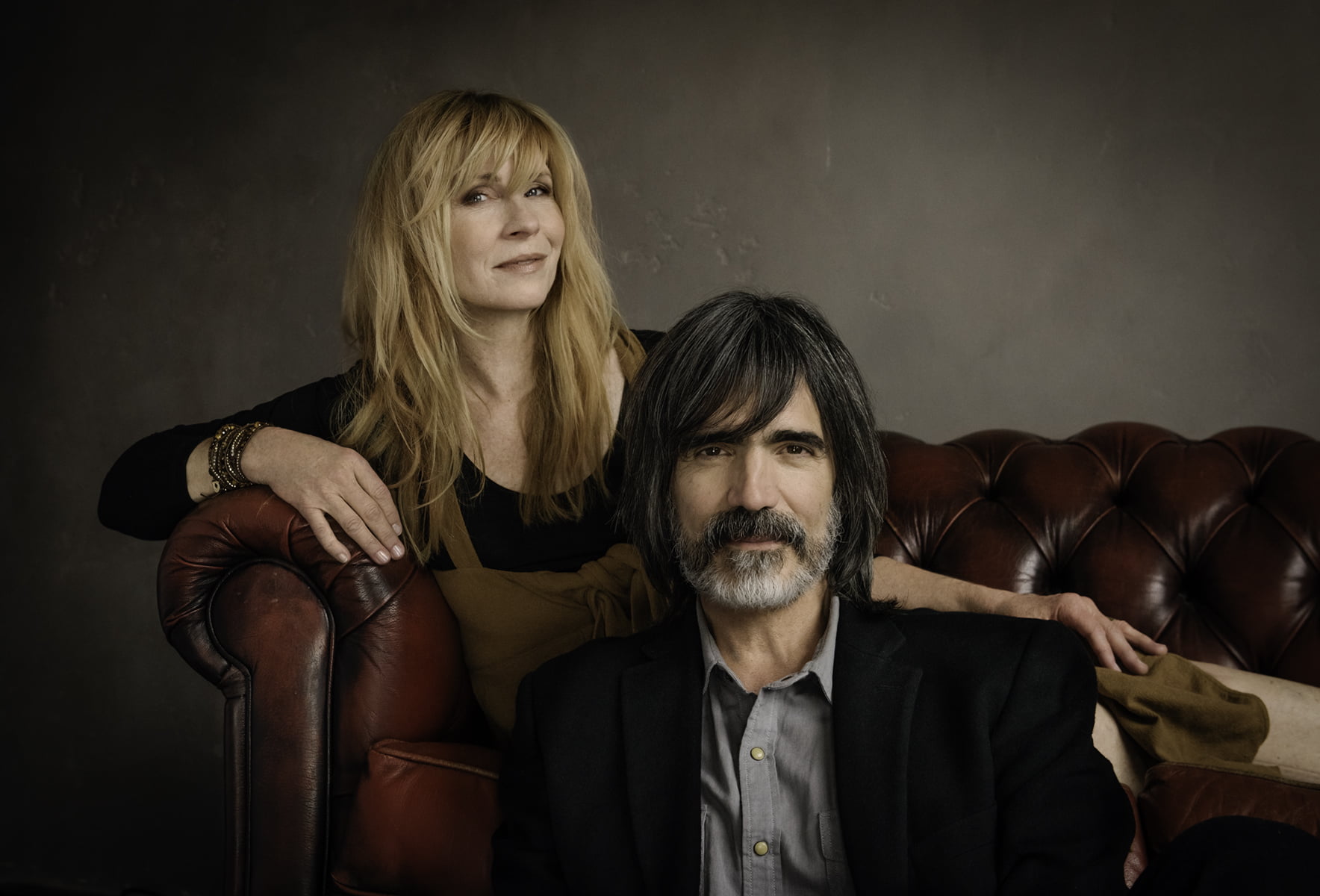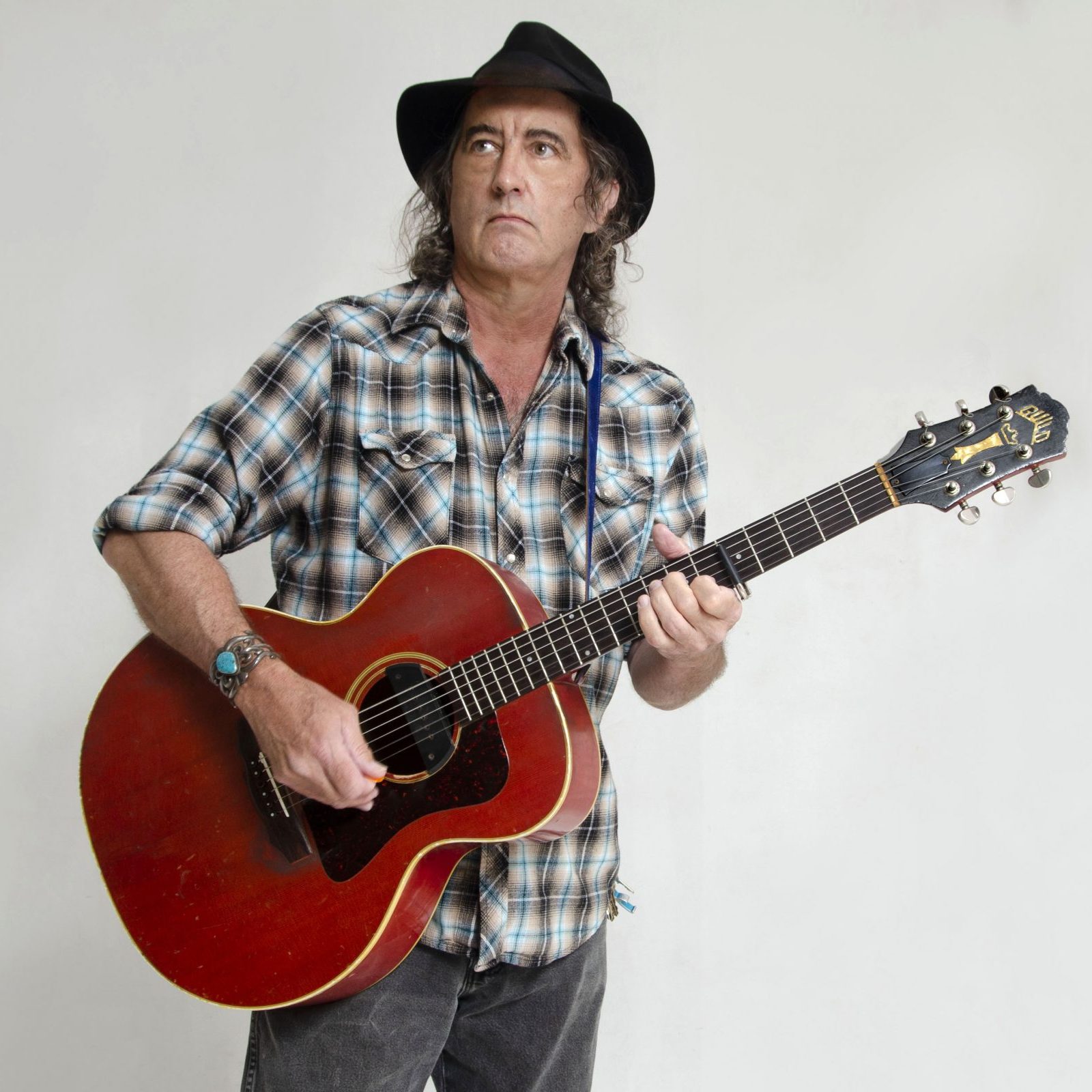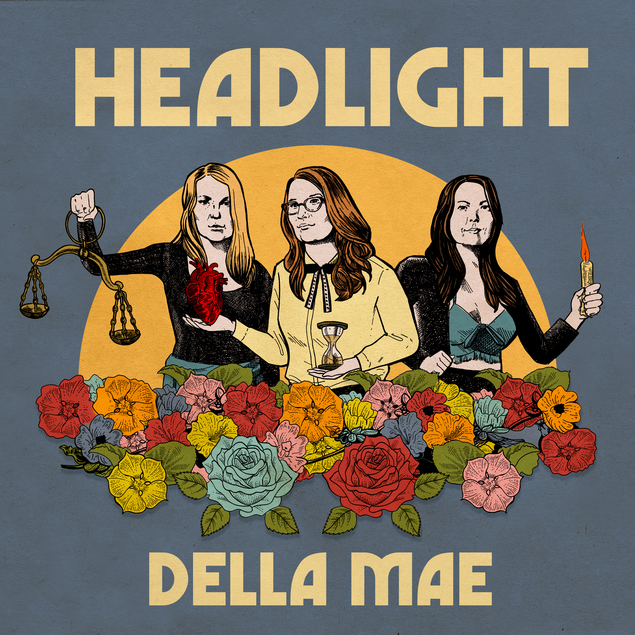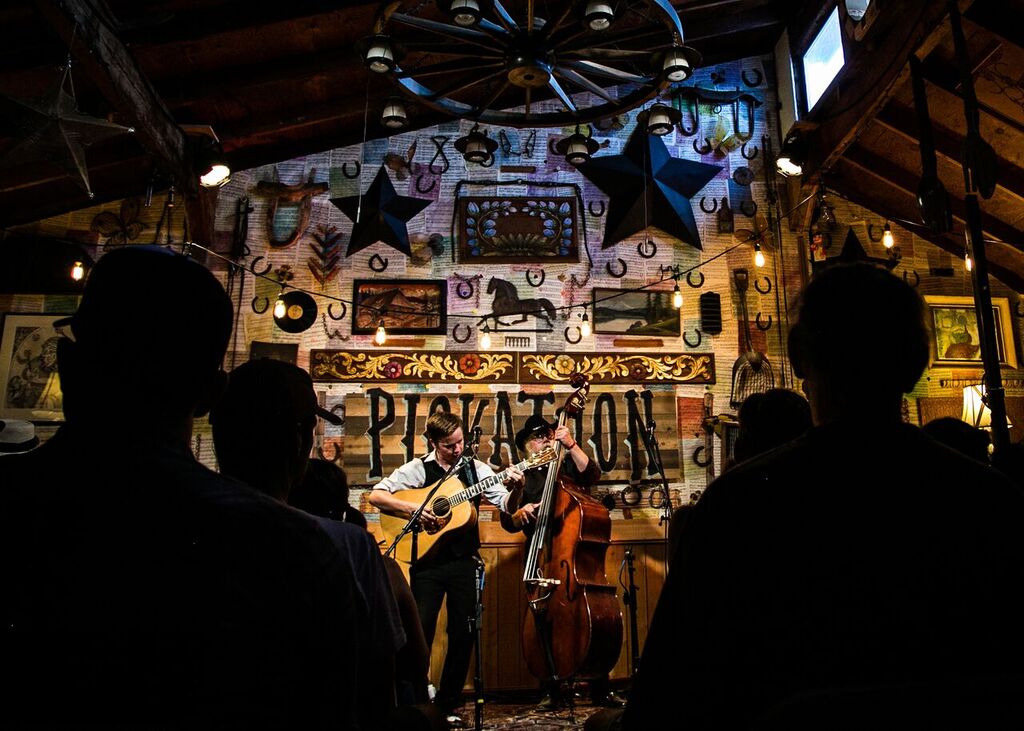Larry Campbell and Teresa Williams have been married for nearly 30 years, but they only turned their private song-making into a public affair with the release of their 2015 self-titled debut. (Though, before that, they played for seven years in Levon Helm’s band.)
Last year, they returned with their sophomore effort, Contraband Love, a darker affair that takes a hard look at love’s pocks in order to reveal its pearls. Original folk-driven songs like “Save Me from Myself” explore a strong relationship’s balm, while the title track promises to keep fighting past the hard-bitten instinct to keep love at bay. Williams’ voice leads the charge on the verses, while Campbell joins her on the harmonies, their voices showcasing their lengthy partnership together. The admiration and respect the couple exhibit for one another — and for the opportunities they’ve been given to live their passion in tandem — only adds to their music-making journey. As they’ve learned, not everything happens quickly. But some things are worth the wait.
You’ve been described as being a riskier slice of Americana. How do you see yourselves pushing against its status quo?
Teresa Williams: Are we pushing against the status quo of Americana? [Laughs] I guess we’re just not thinking about it and letting the chips falls where they fall.
Larry Campbell: That’s pretty much it.
TW: I don’t think that’s a good plan, if you have a trajectory. You just have to take the music as it comes.
LC: Yeah, the stuff we write and perform, ideally, it comes from an organic place where what we’re creating is a mixture of all our influences and, because of the genre that Teresa and I have both been attracted to most of our lives, what comes out fits in the Americana theme. But the goal has never been to make music that can be called Americana music.
TW: They called us Americana! We never did.
Right, I can see how the narrative springs up after the fact.
LC: Levon [Helm] affectionately called Americana “the trash bin of rock.”
TW: It’s a nice haven for all the outcasts, I think. I’ve heard Mary Gauthier say, “This is my tribe. I love my tribe.”
That’s perfect.
LC: Then, by that definition, it pushes against any kind of status quo. The beauty of it is, there really is no status quo for Americana. It’s a big tent. I would hope the underlying requirement to be placed in that category is complete artistic expression and, if you’ve got that, then you’re welcome in.
As opposed to a more commercial approach?
LC: Right.
TW: Or maybe if you’re trying to achieve what you think will go over. Like, “Oops, probably not smart.”
“Save Me from Myself” is such an interesting take on the love song. Can you tell me a bit about where that came from?
LC: It is a love song. We’ve all known people, or been people at times in our lives, who find it very difficult to face our own shortcomings. To me, it’s the idea of unconditional love, where you’re allowed to go through your own personal misery and someone will stand next to you and try to help you through it, but if nothing else, just be there for you. That’s a fascinating facet of love. I’m dabbling with that theme in that song and in the title song, “Contraband Love.” I’ve had issues in my life where I didn’t necessarily like the person I was. The idea that someone would still be there for you, while you’re trying to get all this stuff sorted out and get your stuff together, that’s just fascinating.
You also covered Carl Perkins’ “Turn Around,” which feels like an interesting companion piece to “Save Me.” One is pleading for help from a lover, and the other is offering that very thing. How has time been reshaping your own understanding of love?
LC: Wow.
Big questions today!
LC: Well, Teresa and I have been married for almost 30 years now.
That’s amazing.
TW: Especially in this business.
In the business, but also in this day and age. People don’t put in that kind of time anymore.
TW: It was a little later … I had just turned 32 when we got married.
LC: And I was 33. We’d been through a lot of the experiences that people have that they eventually regret and which causes the relationship to fall apart. We had exhausted most of those experiences. When we got married, it was a really good time in both of our lives where we both understood who were individually, and we both understood the other.
TW: We’ve been through enough to recognize … people use the word soulmate, throw that word around pretty loosely, but it truly felt like, from the first day I met Larry, that was it. What drove us musically was very similar, and that was a huge part of the attraction.
LC: What Teresa and I have between us, we’ve experienced so many facets and aspects of what love is — that it does change and it does morph. But there’s sort of a rock underneath it all. The longer you go, when you’re in a healthy relationship, the firmer that rock gets. I think both of us in this 30-year journey have really done the best we could to treat this relationship with the respect that it warrants.
TW: The irony is that neither of us was looking for marriage at the time.
Isn’t that always how it happens, though?
Both: Yeah!
TW: The day I met Larry, I was putting myself out on a limb, musically. When people talk about meeting the right person, I always say, “Do what you love and keep putting yourself out there with what you love to do.” I think that’s really part of it.
Larry, you’ve mentioned in another interview that songwriting isn’t an easy form of self-expression for you and, after your self-titled debut, you had to get comfortable with what you and Teresa were as a duo. How did you set about doing that?
LC: From my perspective, Teresa has always been a front person, in one respect or another; she was comfortable in that role. For me, I was always a back-up musician, and I was always comfortable as a studio musician or producer. From the first day we met, we would sing together for the love and the fun of doing it.
TW: Especially down in West Tennessee with my family and the local people there.
LC: It took me a long time to develop an appreciation for the notion of being out front and being a singer with original material. I would’ve never been able to develop this, unless I’d done it with Teresa. Fortunately, we had an incubator, which was with the Levon Helm band. He wanted everybody to step up front and do something. That gave me the opportunity to try that stuff with Teresa in public. There are people that are born to get out there and sing and throw themselves in front of the crowd, and it’s taken me an evolution to make that happen, for me to be comfortable. I get such fulfillment out of doing this thing with Teresa that that’s the point, rather than the point being wanting to be up there in front of someone.
It sounds like quite a gift. Talent can, in its own way, take people away from each other, and when you were playing with [Bob] Dylan that did happen.
TW: Yeah, it took its toll. But, at the same time, when I would be out there [visiting Larry on the road], we’d sit in the back of the bus after shows and play music, and Dylan’s manager said, “You guys oughta be making pay off what you have.” I’m not sure it really occurred to us before this. I kinda felt icky about a husband-and-wife team, for some reason. I grew up in the cotton patch — literally, working in the cotton patch. And it felt like [a creative life] was some other cast of people that did that thing out in the world.
Right, it’s such a big thing to think, let alone achieve.
TW: Yeah, like you can’t get too big for your britches. I hate to admit that, as I feel like a strong female.
What’s so interesting about both of your stories is, you didn’t set out looking for this, but you found it together. I love that circularity, that life could bring you what you needed.
LC: When Teresa and I made our first record, and it was starting to kick in that we were going to do this project — this Larry & Teresa thing — I had this feeling that just doing it makes it a success. We’re not going to be JAY-Z and Beyoncé. That’s okay.
TW: [Laughs]
“My Sweetie Went Away” and “Slidin’ Delta” are such fun songs because they stretch the bounds of what you do in more regional ways. I know, Teresa, you grew up in Western Tennessee, and you’ve both been in upstate New York. Is there a region that you feel most drawn to, musically?
TW: I realized, on stage some nights, that almost all the songs we’re singing — except the ones Larry wrote — are the ones from Tennessee. Larry was in New York, going to hear all these world famous artists, these rock ‘n’ roll artists and bluegrass artists passing through New York City. He had a friend who was getting him into the Fillmore East when he was 12. I’m so jealous! I’ll joke; I’ll say, “We weren’t getting that. They weren’t coming through the cotton patch.” But we were getting the music from the dirt, I like to think.
The people that Larry was hearing in New York, they were recirculating our music back to us. We’re technically in the Delta, where I’m from. We’re on the edge of it, so it’s kind of inevitable that Larry and I … I felt like the dirt met the city. His sensibility is from down there, too, obviously. He spent a couple of years down in Jackson, Mississippi, which is the only reason I thought it was okay to marry him. If he hadn’t spent that time, the cultural divide would’ve been too big.
It all feeds into the title: Contraband Love.
LC: Yeah. And what Teresa’s saying about the groups I was seeing in New York — Jefferson Airplane and Grateful Dead and Cream and Jimi Hendrix — all these bands, they had mixed with the cutting edge of rock ‘n’ roll in those days. But beneath that, rock ‘n’ roll did grow out of the South. It came out of all those influences: the country music, the gospel music, the bluegrass music, the old-time music, and the blues of the South. And I was always attracted to the distillation of rock ‘n’ roll. When I was growing up and I would hear someone like Doc Watson and Bill Monroe or Robert Johnson or Muddy Waters, that stuff would ring a bell in me even more than the rock ‘n’ roll I was seeing constantly.
TW: It was like the roots. And the bluegrass, too. Where I was located, we had the blues. We were getting the music coming up from Muscle Shoals. I’m right in the middle of all of that. We’d come in from the fields on Saturday, and we’d listen to Lester Flatt and Earl Scruggs — they had their Saturday evening show. And then daddy was playing this stuff in the living room after supper, and that’s how I learned. I wouldn’t even have to go to school: I’m doing what I learned at my parents’ feet.
Photo credit: Gregg Roth



